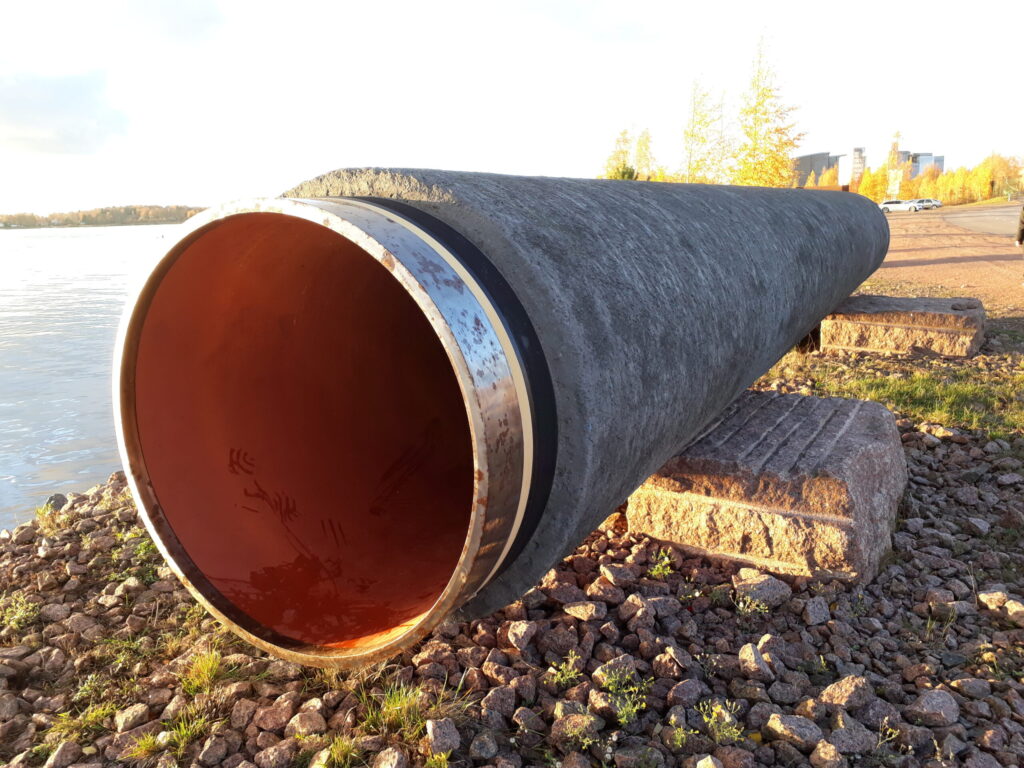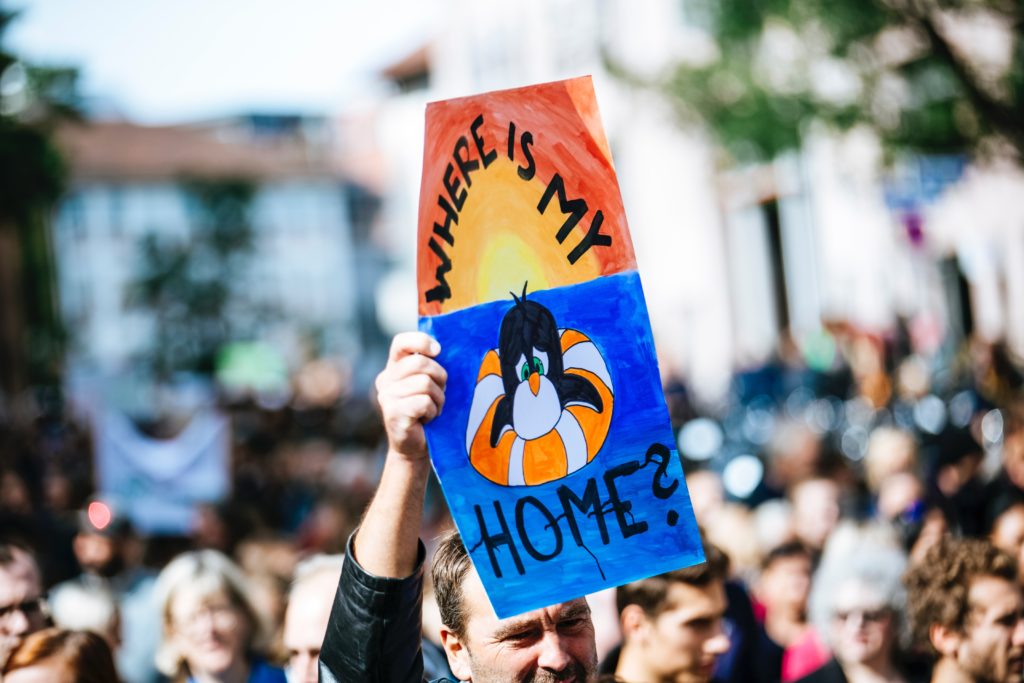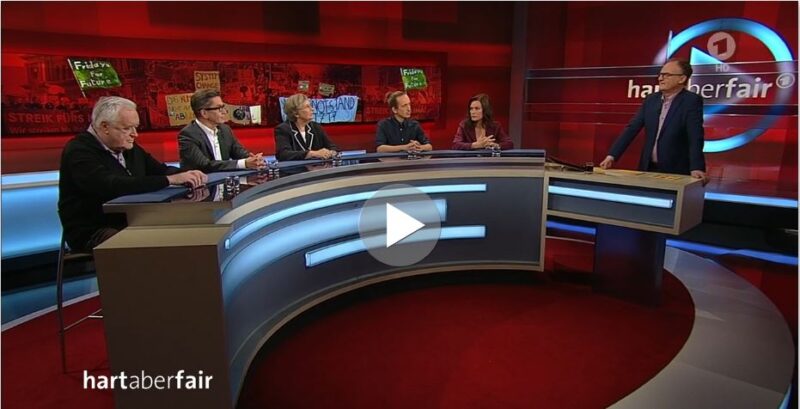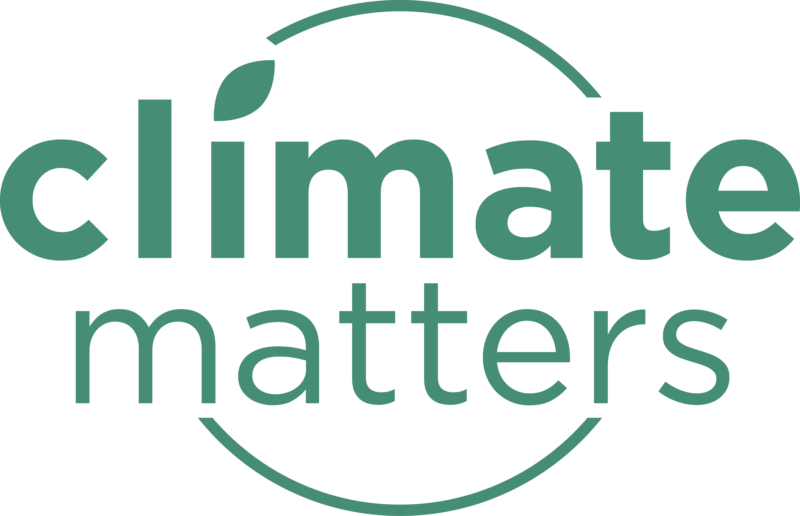Kontaktabbruch ist ein Irrweg
Russland pauschal canceln, bringt erst recht keinen Frieden. Das sollte man nicht vergessen. Ein Gastbeitrag. Joe Biden hat Wladimir Putin schon im März 2021 richtig eingeschätzt: He is a killer. Dem gibt es wenig hinzuzufügen. In Deutschland haben viele die russische Regierung falsch eingeschätzt und zu lange auf Appeasement, Gasimporte und zurückhaltende Diplomatie gesetzt und […]
Nord Stream 2: where the climate crisis meets geopolitics

From the get-go, the multi-billion euro investment “Nord Stream 2” has been widely criticized, regarding political independence from Russia, political oppression through Russia, and the climate implications of investing in gas pipelines. When there is an imminent threat of war looming over the horizon it is hard to find clear-cut answers to global issues. This […]
Why climate and environment belong together

In a recent blogpost, I argued that climate policy should be seen and treated as something fundamentally different from environmental policy. However, I am not sure I entirely convinced even myself. Therefore, I’d like to use this piece to take the opposite stance, by arguing that climate and environmental problems should be confronted together. It […]
Why Climate Policy is not the same as Environmental Policy

Climate change is receiving more and more attention. While the topic has traditionally been seen as an environmental issue, it is now increasingly reaching beyond and detaching from the sphere of classical environmental policy. In this piece, I will argue that this is a good thing. The environmental movement has been around for half a […]
Greenwashing’s new distant cousin

“Act Responsibly Even when You Don’t.” Next to this ambiguous slogan, two young models in jeans are lolling about, promoting Diesel’s Green Label, the brands’ sustainable line. And this is what follows: “Go crazy and at the same time treat the planet with our responsible pieces from the Fall Winter 2020 collection”. Sustainability and shopping […]
Warum das Zwei-Grad-Ziel ein (Kommunikations-) Problem ist

In seinem Kommentar zur Klimapolitik hat sich der Innenpolitik-Chef der FAZ kürzlich schwer vertippt: Er schreibt, es gäbe „die Verpflichtung, bis 2050 die Erwärmung deutlich unter zwei Grad zu senken“. Dabei ist es natürlich so, dass sich die Zwei-Grad-Grenze, so wie sie die Staatengemeinschaft 2015 in Paris beschlossen hat, auf das Jahr 2100 bezieht. Fehler […]
Die Zukunft der Nachrichtenauswahl
Fast täglich werden Nachrichten zu den katastrophalen Auswirkungen des Klimawandels in Zeitungen, Fernseh- und Radionachrichten veröffentlicht. Die Korallenriffe in Weltmeeren schrumpfen so stark wie noch nie, Brände wüten in noch nie dagewesenem Ausmaß in den Wäldern Australiens, ein neues Klimapaket soll die große Wende bringen. Tatsachenorientierte Berichterstattung über die Folgen des fortschreitenden Klimawandels ist absolut […]
Technische und politisch-soziale Innovationen: Nicht nur Ingenieure sind gefragt, sondern wir alle

Kürzlich gab es mal wieder eine deutsche Talkshow mit prominenter Hamburger Professorenbeteiligung. Hans von Storch, mein Kollege an der Universität Hamburg und ehemaliger Leiter des Instituts für Küstenforschung am Helmholtz-Zentrum Geesthacht, saß in der „Hart aber fair“-Sendung von Frank Plasberg zum Thema Klimapolitik. Drum herum die üblichen Verdächtigen: ein Klima-Aktivist, eine Grünen-Politikerin, ein konservativer Publizist […]
Das Klimaschutzprogramm 2030: eine Farce
Vor gut einem Monat hat das Klimakabinett der Bundesregierung sein Klimaschutzprogramm 2030, meist bezeichnet als “Klimapaket”, vorgestellt. Das Programm wurde häufig für mangelnden Ehrgeiz kritisiert. Beispielsweise meint Patrick Graichen, Direktor des Thinktanks Agora Energiewende, dass die vorgesehenen Maßnahmen „bestenfalls für ein Drittel des Weges“ bis zur 2030er Ziellinie reichen. Ich habe mir die Zusammenfassung des […]
Den Klimaschutz nicht zerreden – Vier Fallen der Klimakommunikation
Wenn am kommenden Wochenende der UN-Klimagipfel in New York beginnt, dürfte der mediale Aufmerksamkeitsstrudel um Klimaaktivistin Greta Thunberg noch einmal an Kraft gewinnen. Michael Brüggemann, Professor für Klima- und Wissenschaftskommunikation an der Universität Hamburg, kritisiert die Fokussierung der Berichterstattung auf die Person „Greta“ und die fehlende inhaltliche Auseinandersetzung mit dem Thema. Außerdem erklärt er, was […]
